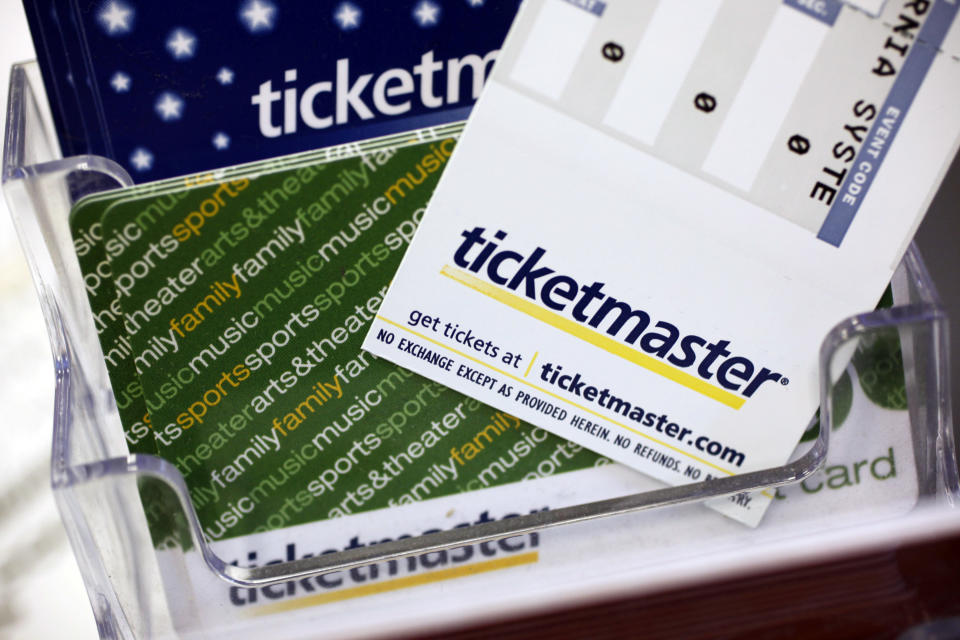Coronavirus cancellations: Outrage over lack of refunds as 59 million people lost money
The coronavirus pandemic has shut down the economy, and along with it, canceled sports events, concerts, Broadway shows, business conferences and weddings. As many as 59 million people in the U.S. have lost money because of cancellations, according to a new Bankrate survey.
Refunds have been hard to come by. Only 30% of people in the U.S. who spent money on cancelled plans have received or will get the full amount back, according to Bankrate.
Refunds for cancelled events would clearly go a long way in helping cash strapped Americans cut their financial losses. As an indication of how tight finances are for many, nearly 30% of Americans will use their government coronavirus stimulus checks to pay their rent or mortgage, according to one survey.
People who asked hotels, airlines, and entertainment ticket sellers for refunds were given future credit more often than actual money back, according to Bankrate. (Bankrate surveyed 2,669 adults.)

Fight for refunds
Many businesses are reluctant to issue refunds because, like so many Americans, they are staring down a dark financial abyss and holding on tight to cash.
Airlines are among those hit hardest by the coronavirus pandemic, as both domestic and international travel have been severely restricted. The $2 trillion fiscal stimulus package includes a $25 billion bailout for the airline industry.
However, the Department of Transportation recently issued a warning to airlines about refusing to give refunds and offering vouchers or credits for future travel instead. “The Department is receiving an increasing number of complaints and inquiries from ticketed passengers, including many with non-refundable tickets, who describe having been denied refunds for flights that were cancelled or significantly delayed,” the DOT said in the April 3 enforcement notice.
The U.S. DOT reminded airlines that being under financial duress doesn’t mean they’re not obligated to refund passengers after a flight is severely delayed or cancelled.
The fee waivers major airlines have been promoting for customers have been good PR but also self-serving, says Bankrate.com analyst Ted Rossman. “If you, the customer, pull the plug on the trip, at least they don’t have to give you actual money back. They keep you on the line, for hopefully traveling again with them within the next year or in some cases, the waiver extends a little further,” he said.
“The consumer advice would be, wait and see if the airline cancels, rather than you making the change,” said Rossman.

Ticketmaster has sparked outrage this week for reportedly updating its policy to deny consumers refunds for postponed or rescheduled events.
Theater, sports and music fans voiced their outrage on Twitter.
Ticketmaster shows it’s true colours in a time of need! They were scummy before and now they do this! Someone please start a new service to replace these idiots!
Here’s a new name ,FANMASTER!#Ticketmaster pic.twitter.com/aBQDk2pSyO— Nancy Callaghan (@nancycallaghan) April 14, 2020
#Ticketmaster you managed to piss off every fandom simultaneously. Good luck with that. pic.twitter.com/R1Pvp7tE5D
— Katie Padilla (@katie_padilla) April 14, 2020
Even Rep Katie Porter (D-CA) weighed in on Tuesday, blasting Ticketmaster for “taking advantage of a crisis.”
“A lot of people are upset about [it] because sometimes concerts and sports events [are] either getting moved to a future date, or a TBD future date, and it kind of leaves that money in limbo,” says Rossman.
I applaud Ticketmaster for continuing to shine in what is apparently a competition to provide the worst customer service in any industry. Exorbitant ticket fees for negligible benefits—now taking advantage of a crisis to line their pockets? Next level. 👏🏼👏🏼👏🏼 https://t.co/XySh6Ka04K
— Katie Porter (@katieporteroc) April 14, 2020
On the other end of the spectrum, some businesses have offered refunds for services that can’t be rendered, including car insurers and gyms.
Rossman advises consumers to go online if phone waits are too long.
“The credit card company is definitely gonna wanna know that you’ve made an effort with the merchant first. So that’s where I would start,” he said adding, “If you can contact the airline, or the hotel, or ticket company...by online chat or email, or even social media or text message it’s probably better, likely a shorter wait. The added benefit is then there’s a digital paper trail.”
As Americans living in economic lockdown look ahead, 51% are keeping it simple and making no plans for the foreseeable future, according to Bankrate.
More from Sibile:
Restaurants fear small business sweeteners for coronavirus package won’t be enough
More than one-third of small businesses may not last a month: poll
Ivanka Trump on $2 trillion coronavirus relief: Our mandate is to ‘swing for the fences’
Majority of Americans cut back on spending because of coronavirus concerns
Coronavirus stimulus package: What Congress unleashing fiscal firehose means for U.S. economy
